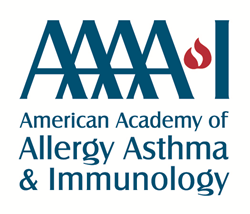
“This study tells us that the individuals with seasonal allergies are very familiar with their symptoms and when prompted, were able to distinguish between them and similar COVID-19 symptoms.” – Fabio Ferreli, MD
MILWAUKEE (PRWEB)
August 17, 2020
According to a study published in The Journal of Allergy and Clinical Immunology: In Practice (JACI: In Practice), symptoms of Allergic Rhinoconjunctivitis (ARC) differ from nasal and ocular symptoms at the onset of COVID-19. The ability to distinguish between the two will make it easier for those with seasonal allergies to correctly interpret symptoms of both diseases.
Both nasal and ocular symptoms are included as potential signs of COVID-19, which has caused confusion for people suffering from ARC. Patients with documented ARC who were diagnosed with COVID-19 in March 2020 at an academic hospital in Italy were included in the study. A total of 22 patients met inclusion criteria.
Sinonasal and ocular symptoms that were reported in the two weeks before a COVID-19 diagnosis were studied using the Mini Rhinoconjunctivitis Quality of Life Questionnaire (MiniRQLQ). The questionnaire evaluated 14 signs and symptoms on a scale from 0 (“not troubled”) to 6 (“extremely troubled”), with score totals ranging from zero to 84 once all question responses were combined. MiniRQLQ was then used to assess patients with ARC by asking them to report their last allergic symptom period before the COVID-19 outbreak. They were asked to compare COVID-19 symptoms and ARC symptoms by defining them as “identical”, “similar”, “different”, or “completely different”.
The median MiniRQLQ score was 39.5 for the criteria of last allergic symptom period before the COVID-19 outbreak and 15 for the onset of COVID-19. Symptoms of ARC compared to symptoms of COVID-19 at the onset were defined as “completely different” by 68.2% of patients, “different” by 13.6%, and “similar” by 18.2% of patients. None of the patients reported the symptoms as “identical”.
“This study tells us that the individuals with seasonal allergies are very familiar with their symptoms and when prompted, were able to distinguish between them and similar COVID-19 symptoms,” said first author Fabio Ferreli, MD. “While we realize our study had a rather small sample size, we hope this will reassure allergy sufferers who are attempting to distinguish between COVID-19 and their seasonal allergies.”
You can learn more about allergic rhinitis on the American Academy of Allergy, Asthma & Immunology website, aaaai.org.
The American Academy of Allergy, Asthma & Immunology (AAAAI) represents allergists, asthma specialists, clinical immunologists, allied health professionals and others with a special interest in the research and treatment of allergic and immunologic diseases. Established in 1943, the AAAAI has more than 7,100 members in the United States, Canada and 72 other countries. The AAAAI’s Find an Allergist/Immunologist service is a trusted resource to help you find a specialist close to home.
Share article on social media or email:

